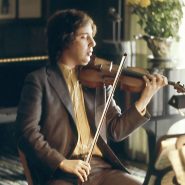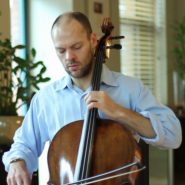Tag: harmony
5:53
By Robert Battey February 3, 2012
Subjects Practicing
Tags Accomplishment, Battey, cello, cellobello, character, Coordination, Development, dynamics, Effective, ensemble, harmony, Janos, Listening, music, perfection, Rhythm, sight-reading, Starker, success, Technique
By Lev Mamuya September 6, 2011
Subjects Pre-College
By Brant Taylor July 19, 2011
Subjects Practicing
Tags aspirations, Awareness, bow speed, Brant, cello, cellobello, character, concentration, concepts, contact point, creativity, details, effortless, exploration, finesse, fundamentals, harmony, ideas, Janos, legato, lessons, Listening, musical, Philosophy, release, skills, small details, solutions, Starker, Taylor, tension, vibrato, weight




